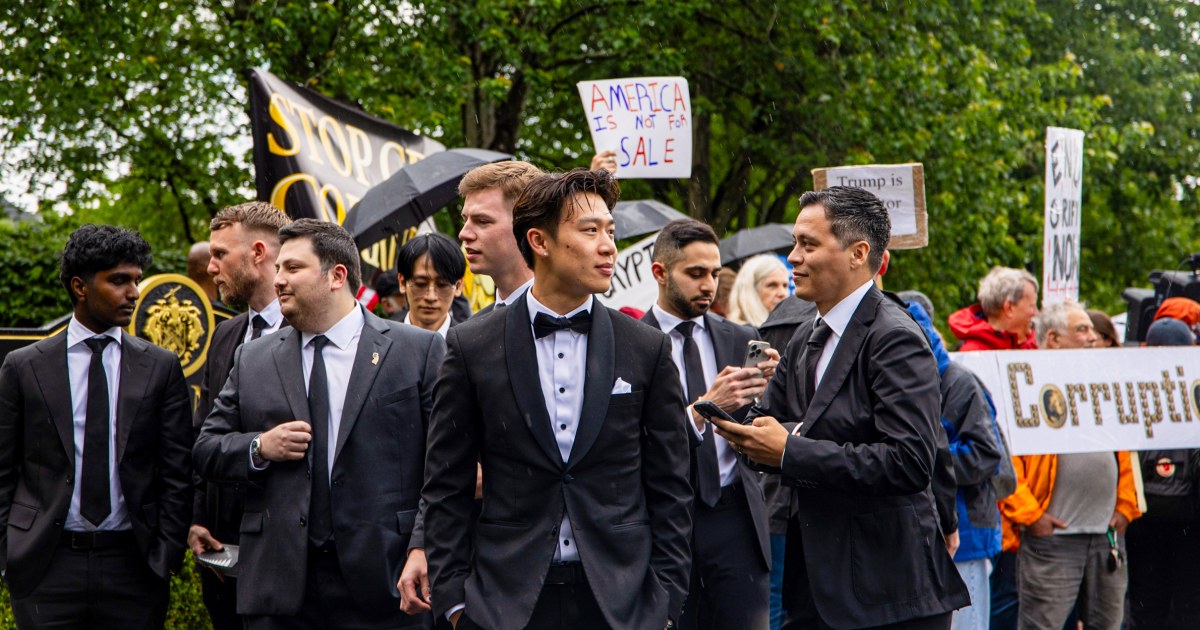A recent dinner attended by President Donald Trump raised eyebrows over its perceived blend of personal and political motives. White House press secretary Karoline Leavitt emphasized that the event was not an official White House dinner but instead a personal engagement for Trump. However, promotional materials described it as an exclusive opportunity to hear Trump discuss cryptocurrency, branding him as the “Crypto President.” Despite his previous criticisms of cryptocurrencies in 2019, Trump has since embraced the industry, expressed through the $TRUMP coin project.
The dinner’s organizers have faced scrutiny for not being transparent about attendees, who seemed eager to purchase access to Trump. Protesters highlighted concerns about potential corruption, arguing that wealthy individuals are paying for influence, while some attendees defended their participation as a unique experience. Notably, Kendall Davis, a crypto entrepreneur, expressed pride in dining with Trump and downplayed concerns regarding political biases.
Amidst the controversy, allegations surfaced regarding Trump’s potential financial motivations, which were denied by White House spokesperson Anna Kelly. The $TRUMP coin itself is characterized more as an expression of support rather than a traditional investment, further muddying its role in the event.
The situation escalated as protesters demonstrated against the perceived corruption and misuse of influence at the event. Meanwhile, Senator Jeff Merkley introduced the End Crypto Corruption Act aimed at preventing executive branch officials from financially benefiting from cryptocurrency endorsements, reinforcing the debate over ethics in political engagements linked to financial interests.
Photo credit
www.nbcnews.com




